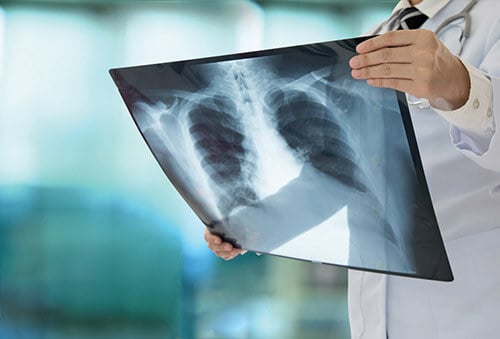
(Courtesy of HRH) While radiology has typically been a field of medicine utilized as something after a patient incurs an injury or issue, radiology is heralded in the hospital world as one of the best options for preventive health. From mammograms to screenings for colorectal cancer to interventional radiology: when all these screenings and tests are combined, a patient has a better perspective on their future health picture.
At Hudson Regional Hospital specifically, our emphasis is on using these tests while reducing the most amount of radiation possible. Minimal radiation ensures that both the benefits of radiology are received, while any side effects are minimized.
The hospital provides a range of different examination and treatment options that fall under the radiology umbrella. Based on the most recent data and input from Hudson Regional Hospital physicians, here is a sample of some radiological tests that can both assist you in the short term and give you health stability in the long term.
Interventional Radiology: As opposed to many traditional radiological tests, Interventional Radiology (IR) is used in combination with radiological image guidance to target therapies specifically. Many of IR treatments are seen as minimally invasive and are often a same-day procedure. Although not “concretely” preventive, IR procedures can be seen as precautionary to avoid lengthy, drawn-out surgical procedures. For example, IR is utilized to look for the first signs of conditions like abnormalities in the blood vessels and blockage areas in the liver.
Nuclear Medicine: Nuclear medicine is a category of radiological tests that are typically used to look for signs of cancerous tumors and how cancer has spread in the body. These tests utilize radioactive medication—usually injected—that can then be used to create two or three-dimensional images of the internal frame. These images display pictures based on the body chemistry, rather than physical shapes and forms. Some tests that are categorized as nuclear medicine include a bone scan, PET scan, thyroid scan, MUGA scan of a gallium scan.
Mammography: Hudson Regional Hospital uses the latest X-ray and 3D digital imaging technology to test women for breast cancer. Traditional mammography produces just two images of each breast: a side-to-side view and a top-to-bottom view. 3D mammography produces many X-ray images of the breasts from multiple angles to create a digital 3-dimensional rendering of internal breast tissue. Research suggests that radiologists are able to more accurately interpret results from 3D mammography in dense breast tissue, which can lead to fewer false-positive and false-negative readings.
Regarding preventive health, we recommend women receive mammography yearly, starting when they are 45. You can begin to have a mammography every other year after turning 55. In the past 20 years, mammographies have helped reduce the breast cancer mortality by 40%.
CT Scan: Perhaps the most ubiquitous of radiological tests, a CT scan combines a series of X-ray images taken from around your body, using computer processing to create cross-sectional pictures of the bones, blood vessels and soft tissues. Although there is no typical recommendation for frequency of CT scans, a CT scan can help diagnose muscle and bone disorders, pinpoint the location of a tumor, infection or blood clot, guide surgical procedures, monitor the effectiveness of specific treatments and detect internal injuries and bleeding.
Ultrasound: While an ultrasound test is used traditionally as a way to view images during a women’s pregnancy, you might be surprised to learn that ultrasounds can be used diagnostically as well. For example, an ultrasound can be used to diagnose conditions and soft tissues of the body including the heart and blood vessels, liver, gallbladder, spleen, pancreas, eyes and thyroid. Also, an ultrasound is generally painless and does not expose patients to any radiation, making it safer than other techniques.
Hudson Regional Hospital offers these radiology services and others, both on an inpatient and outpatient basis. Patients can inquire about these services or schedule appointments by contacting the hospital directly, either via telephone, at 201-392-3100, or email, at [email protected]. Patients facing medical emergencies should proceed directly to the emergency room. The emergency room contact number is 201-392-3210.










